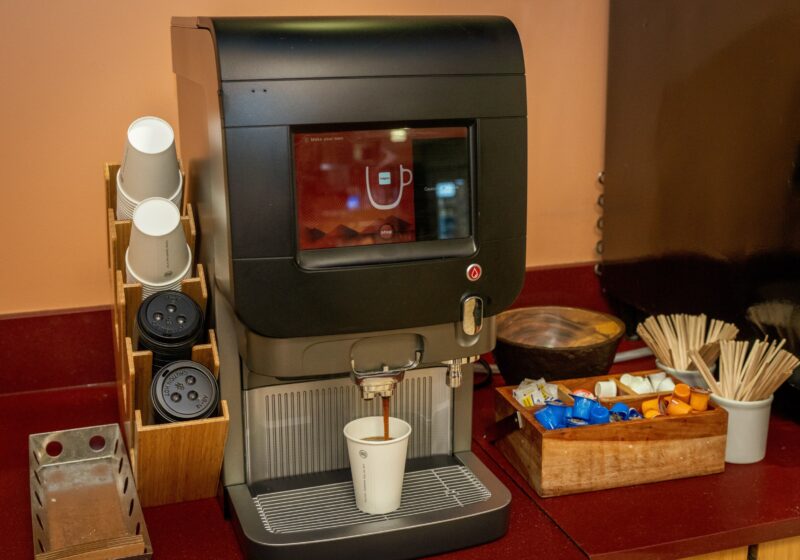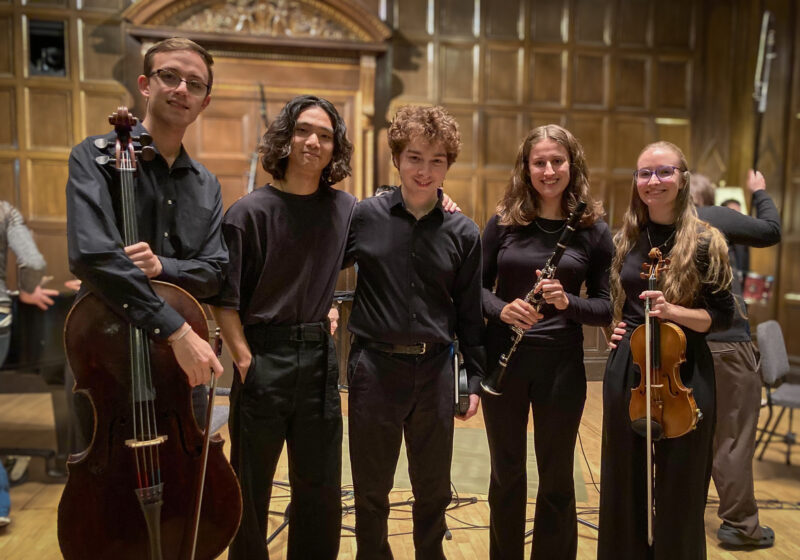As part of the Meliora Weekend celebration, the Physics and Astronomy Department invited guest speaker Steven Beckwith, director of the Hubble Space Telescope Science Institute, to speak on “Leadership in Space Technology.”
UR physics and astronomy professor Adam Frank introduced Beckwith to the audience. Frank explained the importance of infrared light in making discoveries. “Infrared light is most capable to penetrate dense objects. UR is a leader in developing infrared chips,” Frank said. “We have the largest infra-red laser in the world, which mimics astrophysical conditions. We’d like to continue to push the envelope on what can be done in understanding the heavens.”
Beckwith told the crammed Hubbell Auditorium audience that many of the great discoveries have been made by the Hubble Telescope since its initial launch in 1990. While Beckwith mainly focused on these findings, he also wanted the audience to realize both how and why discoveries of this sort are and have been made in the astronomical world.
“Sometimes leadership and discoveries happen by accident,” Beckwith said. “The greatest example of this in astronomy’s history,” he pointed out, “has been the discoveries made by Galileo.”
In the early 1600’s the telescope was invented by Galileo, but not to be used in its present-day purpose. Money, something that is still a driving force behind many individuals’ actions, Beckwith continued, was the main reason Galileo became one of the first to make breakthroughs about the universe.
The Italian government gave Galileo funds to create a device to aid in viewing distant warships that were approaching Italy. To this end, Galileo invented the telescope. While it is unknown how important the telescope became for the Italians, the discoveries Galileo made when pointing the device upwards have changed our knowledge of the universe we live in.
Beckwith also discussed the discoveries brought forth by the Hubble Space Telescope. The main difference between Hubble and similar devices is the clarity with which Hubble takes pictures.
“The Hubble is the first to get above the atmosphere,” said Beckwith. “This allows it to also be the first to give pictures with no distortion of the atmosphere.”
The Hubble has provided “the deepest pictures ever of the universe,” Beckwith said. “We can see in its pictures galaxies whose light left them as long as one billion years after the world started.”
Beckwith made sure the audience understood why something like the Hubble exists today, and what it says about the place that civilization has reached. He pointed out that the Hubble does not exist to aid in war, in politics or to improve our surroundings.
“I think leadership in space technology represents a high point for our civilization,” Beckwith said. “[The Hubble] exists to give us a greater understanding of our surroundings. It is the hallmark of our civilization when the Hubble exists because of curiosity.”
Pal can be reached at spal@campustimes.org.





